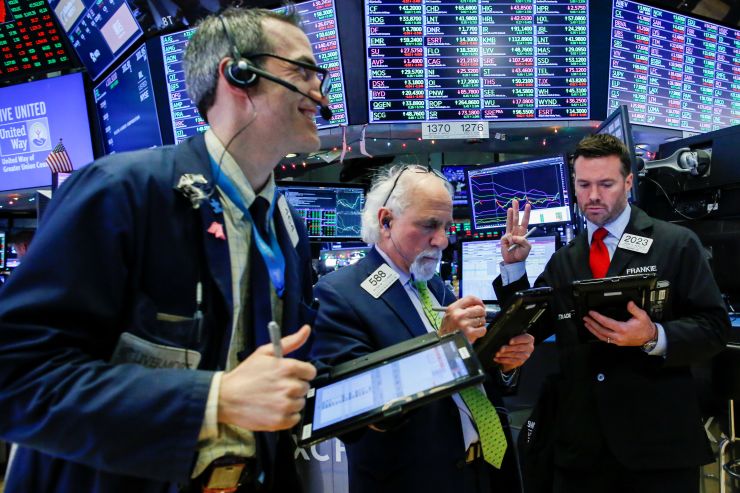
The rally may be getting ahead of itself. Downside risks are increasing.
The good news: Trade talk rumors are giving another leg-up to an already-healthy rally.
The bad news: The markets are now pricing in a favorable trade deal, and the markets are increasingly vulnerable to a disappointment or a “sell the news” situation.
The S&P 500 has moved 50 points, and the Dow Jones Industrial Average about 500 points, since mid-afternoon Thursday, when The Wall Street Journal first reported some progress on China trade talks. Other reports Friday indicated that China may be making trade concessions, including an offer of a six-year increase in U.S. imports. Another report says a deal would aim to reduce the trade deficit with the U.S. to zero by 2024.
None of this has been confirmed, but the effect on the market has been undeniable. The market has gone from dramatically oversold to overbought in a few weeks.
Because we have had a significant move up already, the market is vulnerable to downside risks. There’s the risk that there is no trade deal or that once a trade deal is announced the market will “sell on the news.” There’s a risk that there will be little if any reaction or that, depending on the terms of any deal, the market may drop.
The bulls are already saying that this is good news, and of course it is. Nobody wants a tariff war. The outlines of the deal seem pretty clear:
- The Chinese want to keep their economy going and maximize their exports. They are willing to buy more U.S. goods to do that. They are concerned with fairly short-term issues.
- The U.S. is trying to leverage China’s short-term pain and desire to shore up its economy, but this is going to almost certainly involve more than just China buying more chicken.
- The U.S. wants longer-term concessions. The U.S. is more interested in reducing China’s intellectual property theft. Even longer-term, we are more interested in not losing our competitive technology advantage and cutting down China’s global influence. This is where the deal could fail.
Back to the markets. There’s one other big problem. A major trade deal could have ripple effects on the U.S. economy. Hopefully more trade will be beneficial, but there may be one other, less desirable, side effect. If you get a major trade deal, bond yields could start to rise, and the Fed may start to get more aggressive about raising rates.
“The market is rallying like we are going to get both a trade deal and a dovish Fed, but if you take away trade risks, there’s a good chance the Fed will get more hawkish” Alec Young, managing director of Global Markets Research at FTSE Russell, told CNBC.
